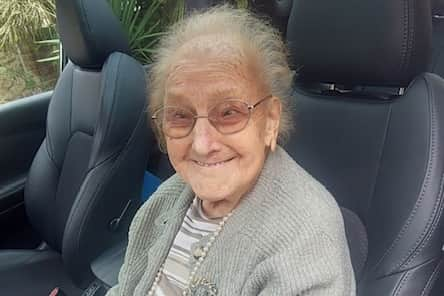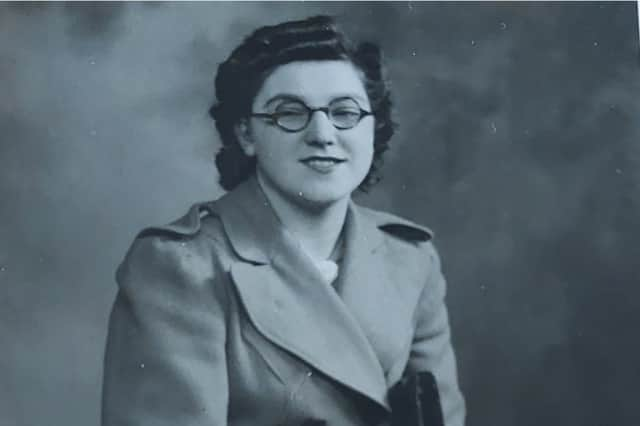'We kept working as bombs fell around us': Sheffield WW2 'woman of steel' marks 100th birthday
and live on Freeview channel 276
Gwendoline is celebrating her 100th birthday today (October 10) with friends and family, complete with a singer.
Advertisement
Hide AdAdvertisement
Hide AdBut the festivities will be a far cry from the life she led during World War Two, when she was called up to be one of Sheffield's 'Women of Steel', working in the factories after the city's men had been sent to fight.
Originally from Woodhouse, she has lived in recent years in Whitwell, between Chesterfield and Worksop, with family, and celebrated her big day at home. Singers including a Vera Lynne tribute singer, and John Riley, who wrote a song about the Women of Steel, both came to perform for her.


But during the war, she worked at the International Twist Drill factory, near Infirmary Road in Sheffield, making drill parts for the army and navy.
She told The Star: "When the bombs were going off, they would not let us leave. On one occasion, I went out and couldn't go the way I usually would because the houses were down. That's how close we were.
Advertisement
Hide AdAdvertisement
Hide Ad"It was very frightening during the air raids - we had nowhere to go."
Gwendoline also recalls a time a German pilot landed in the city centre after bailing out of a stricken bomber.
She said: "The young man was a German, and was outside C&A. The plane had been shot down."
She said people were shouting abuse at him, and the situation looked like getting nasty. She said: "I shouted to them to stop, and that he was only like one of our lads who have to go ver there - he is someone's son." The shouting stopped.


Advertisement
Hide AdAdvertisement
Hide AdShe also recalls the horror of injuries among her workmates at the factory, describing one former colleague as 'scalped' after getting her hair caught.
"There was a belt that powered the machines that went up to the ceiling," she said. "She had forgotten her cap, and would not go home, saying she did not want to lose any money. Her hair got caught, and she was scalped. They sent her to Sheffield Infirmary." Gwendoline added that the woman survived her injuries.
After the war, Gwendoline, who lived on Tilford Road, married George Bryan, who made runways for aeroplanes. She worked as a cleaner at pubs across Sheffield, and raised her son, Mike. She now also has two grandchildren and six great grandchildren.
Son Mike said: "We're very proud of her."
The Star campaigned for the Government to recognise the contribution the 'Women of Steel' made to Britain's war effort during World War Two, which led to official government recognition and a statue in Barker's Pool.
Advertisement
Hide AdAdvertisement
Hide AdSeveral hundred women were put to work while their men were away at war but when the hostilities ended they went back to running their homes and their war work was largely forgotten.
While it is not known exactly how many women worked in the city’s steelworks during the war, it is estimated to have been hundreds, possibly thousands, from all manner of backgrounds, working as everything from heavy machine operators to crane drivers.
Comment Guidelines
National World encourages reader discussion on our stories. User feedback, insights and back-and-forth exchanges add a rich layer of context to reporting. Please review our Community Guidelines before commenting.